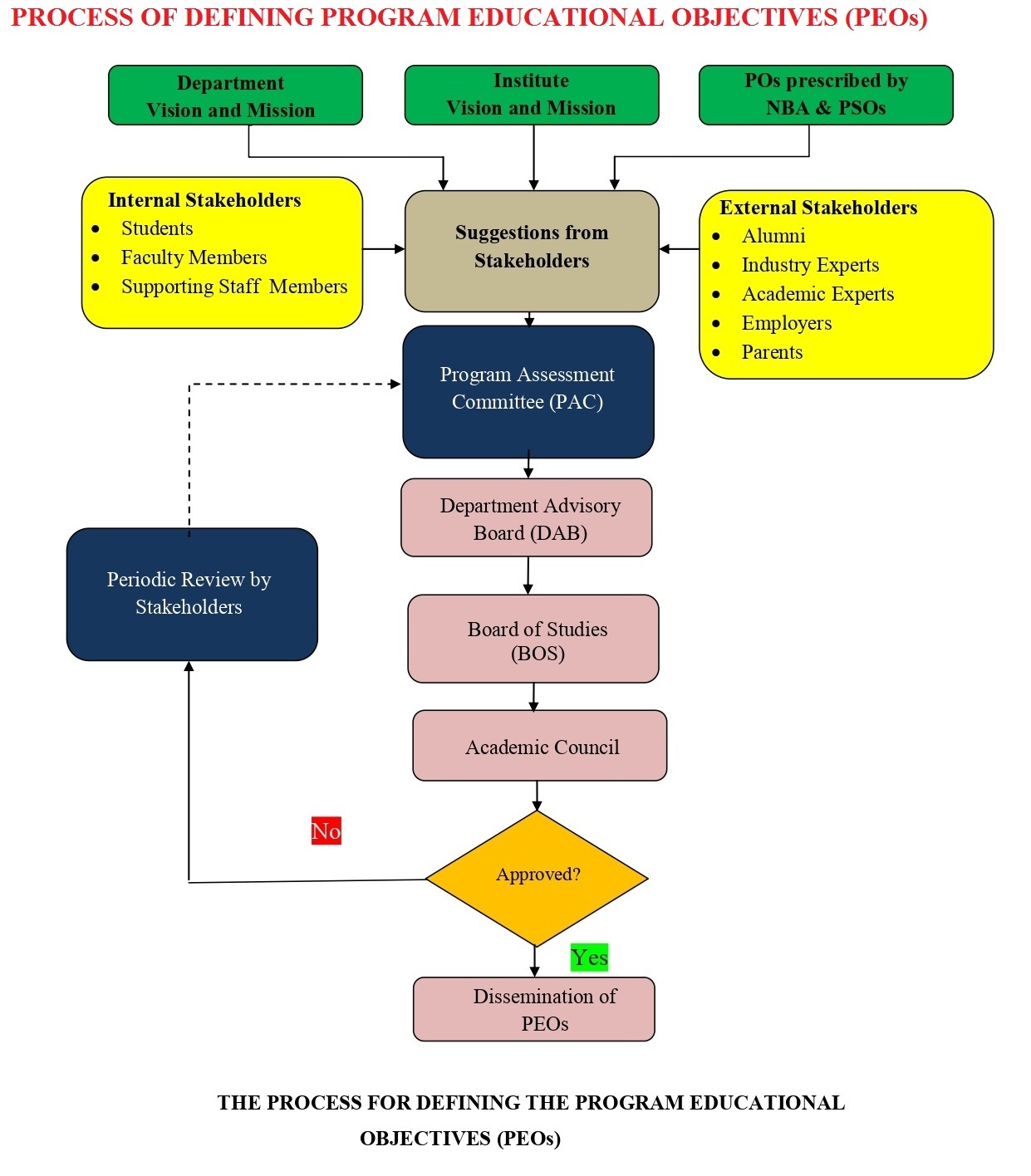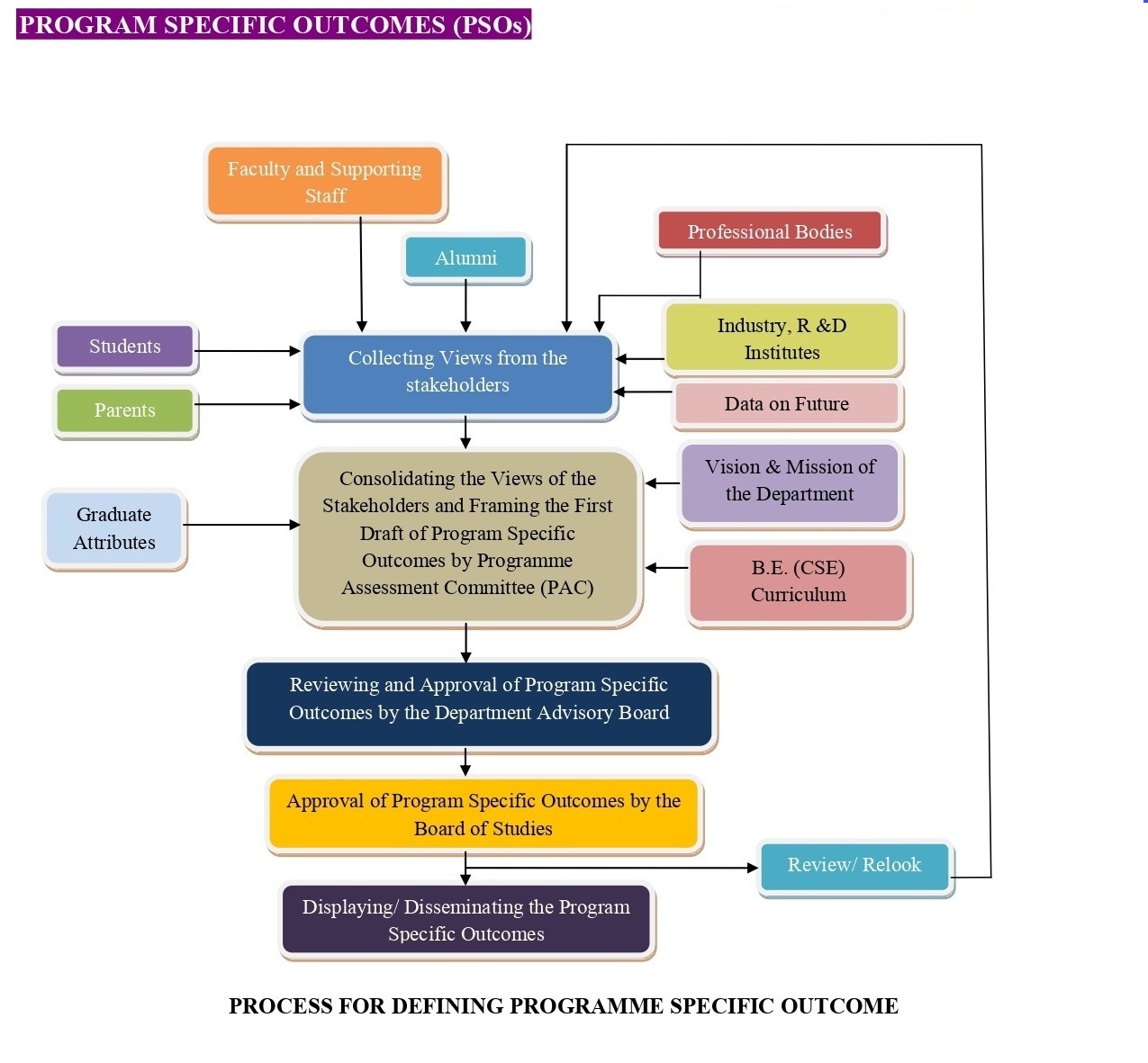PEOs, POs and PSOs
PROGRAM EDUCATIONAL OBJECTIVES (PEOs)
Program Educational Objectives are broad statements that describe the career and professional accomplishments that the program is preparing graduates to achieve
The graduates of Agricultural Engineers after 3 to 5 years will be.
PEO1: Core Competency: Successful professional with core competency and inter-disciplinary skills to satisfy the Industrial needs.
PEO2: Research, Innovation and Life-long Learning: Capable of identifying technological requirements for the society and providing innovative solutions to real time problems.
PEO3: Ethics, Human values, and Entrepreneurship: Able to demonstrate ethical practices and managerial skills through continuous learning.

PROGRAM OUTCOMES (POs)
Program Outcomes are statements that describe what students are expected to know and be able to do upon graduating from the program. These relate to the skills, knowledge, attitude and behaviour that students acquire through the program.
PO 1: Engineering Knowledge: Apply the knowledge of mathematics, science, engineering fundamentals, and an engineering specialization to the solution of complex engineering problems.
PO 2: Problem Analysis: Identify, formulate, review research literature, and analyze complex engineering problems reaching substantiated conclusions using first principles of mathematics, natural sciences, and engineering sciences.
PO 3: Design / Development of solutions: Design solutions for complex engineering problems and design system components or processes that meet the specified needs with appropriate consideration for the public health and safety and the cultural, societal, and environmental considerations.
PO 4: A Conduct Investigations of Complex Problems: Use research-based knowledge and research methods including design of experiments, analysis and interpretation of data,and synthesis of the information to provide valid conclusions.
PO 5: Modern Tool Usage: Create, select, and apply appropriate techniques, resources,and modern engineering and IT tools including prediction and modeling to complex engineering activities with an understanding of the limitations.
PO 6: The Engineer and Society: Apply reasoning informed by the contextual knowledge to assess societal, health, safety, legal and cultural issues and the consequent responsibilities relevant to the professional engineering practice.
PO 7: Environment and Sustainability: Understand the impact of the professional engineering solutions in societal and environmental contexts, and demonstrate the knowledge of, and need for sustainable development.
PO 8: Ethics: Apply ethical principles and commit to professional ethics and responsibilities and norms of the engineering practice.
PO 9: Individual and Team Work: Function effectively as an individual and as a member or leader in diverse teams and in multidisciplinary settings.
PO 10: Communication: Communicate effectively on complex engineering activities with the engineering community and with society at large, such as, being able to comprehend and write effective reports and design documentation, make effective presentations, and give and receive clear instructions.
PO 11: Project Management and Finance: Demonstrate knowledge and understanding of the engineering and management principles and apply these to one’s own work, as a member and leader in a team, to manage projects and in multidisciplinary environments.
PO 12: Life-long Learning: Recognize the need for, and have the preparation and ability to engage in independent and life-long learning in the broadest context of technological change.
PROGRAM SPECIFIC OUTCOMES (PSOs)
Program Specific Outcomes (PSOs) refer to the specific abilities, knowledge, skills, and attributes that graduates are expected to possess upon completing a particular academic program or course of study
The students of Agricultural Engineering will be able to
PSO1: Design, analyze and apply the knowledge gained on agricultural machinery, tools, implements and production technologies to increase crop production, improve land use, soil nutrient and conserve resources like water, fertilizer, and energy.
PSO2: Apply the comprehensive knowledge of engineering properties of agricultural products for upgrading the unit operation and developing innovative process, value-added products, and advanced engineering technologies to meet the challenges in agriculture.




